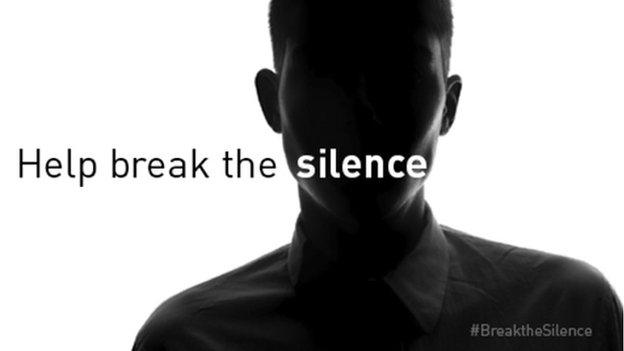Reported sex offences against males in England and Wales tripled in 10 years
- Published

12,130 sexual offences against males were reported in 2016-17
Reports of sexual offences against men and boys have more than tripled in the past decade, figures show.
There were 12,130 offences reported in England and Wales in 2016-17, compared with 3,819 in 2006-07, said the Office for National Statistics.
Andy Connolly, from Survivors UK, said victims were beginning to feel they would be believed but there was still a "massive wall of silence".
A 2015 survey, external estimated about 96% of offences against males go unreported.
Mr Connolly, chief executive of male rape and sexual abuse charity Survivors UK, said: "We do know of men who come forward and they just meet comments like 'men can't get raped, they can't be sexually abused' and are treated with disbelief that it is even a thing that happens to men."
The figures, given to the BBC after a request, show that reports of sexual assaults against males went from 2,687 to 7,610 (+183%) and rape reports rose from 1,132 to 4,520 (+299%) between 2006-07 and 2016-17.
Over the same period, reports of sexual assaults against females rose from 21,128 to 38,186 (+80.7%) and rape reports went from 12,599 to 36,639 (+190%).
Allegations did not necessarily take place in the year they were reported and therefore the increase has been attributed to a rise in the number of historic allegations being made to police.

In West Yorkshire, The Blast Project said more than 80 boys and young men had been referred to their service in the past 12 months because they were either being sexually exploited or at risk of being abused.
Jack - not his real name - said he had been abused by older males after he came out as gay when he was 13.
He said that over a period of 18 months he was groomed and abused by more than 15 men but when he tried to speak to police he was told he was "a waste of time and resources".
"The police were initially very aggressive in their approach to everything," he said
"It wasn't caring about how I felt at the time and that I was going through a lot."
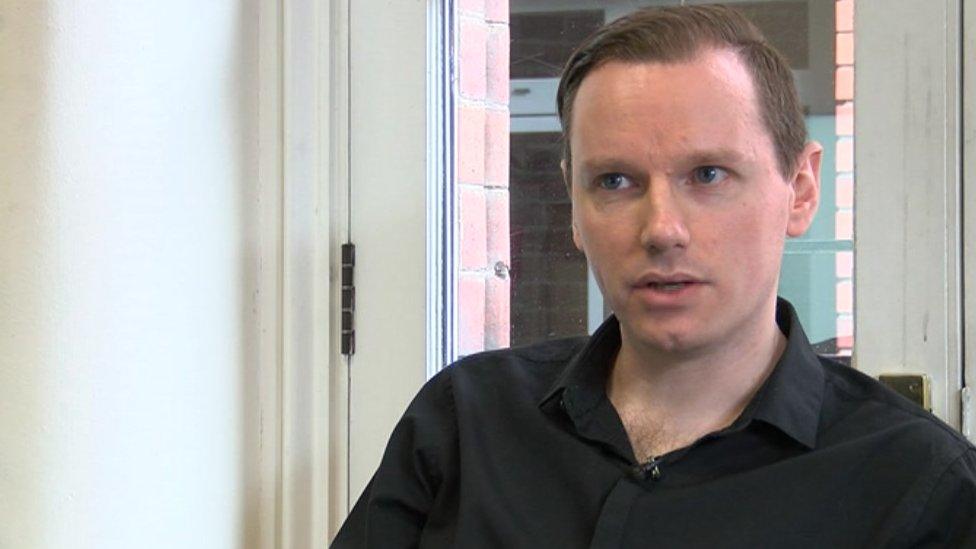
Phil Mitchell, from The Blast Project in Leeds, said it had received 80 referrals in the last year
Phil Mitchell, from The Blast Project, said when Jack had come forward he had been made to feel responsible for what had happened.
"He was trafficked, kidnapped, raped," he said.
"Sadly there were professionals telling Jack 'this is your fault. You are looking for the abuse. You are making this happen'.
"Jack was not looking for abuse, Jack was looking for love and acceptance."
'We've come a long way'
Det Supt Darren Minton, of the West Yorkshire Police Safeguarding Central Governance Unit, said the force had invested "heavily" in training around the issue.
"Historically, perhaps, we did not recognise the signs, certainly of male victims," he said.
"[But] we have come a long way...and anyone wanting to come forward will be listened to and dealt with in a non-judgemental way and, most importantly, will be believed."
Mr Connolly said that research by Survivors UK had found the average time it takes for a victim to come forward is 26 years.
He said he believed factors including the Jimmy Savile and football abuse scandals and the recent allegations made against Hollywood producer Harvey Weinstein, which he denies, had led to an increase in confidence in the authorities.
"[Reponses] range from the perfect, brilliant responses, where men are treated as respectfully and as well as you would hope anyone would be, male or female, to the other extreme where people are treated with complete disbelief," he said.
"It can be very patchy though and we do hear of lots of very excellent people who do deal with it as they should."
He said Survivors UK, which deals with over 18s, provided online support to about 1,500 men and face-to-face help to about 200 men each year, and that the waiting time for counselling was now nine to 12 months.
- Published30 January 2017
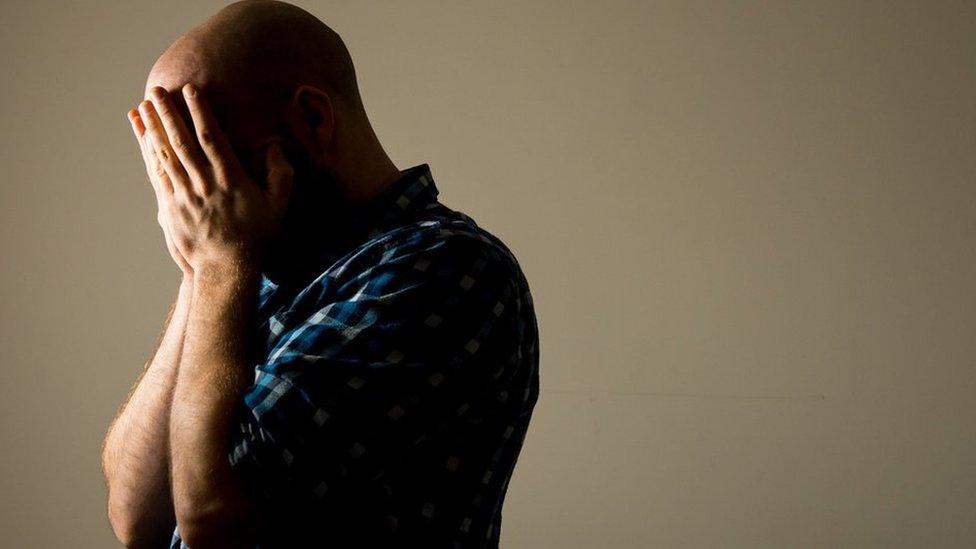
- Published17 November 2015
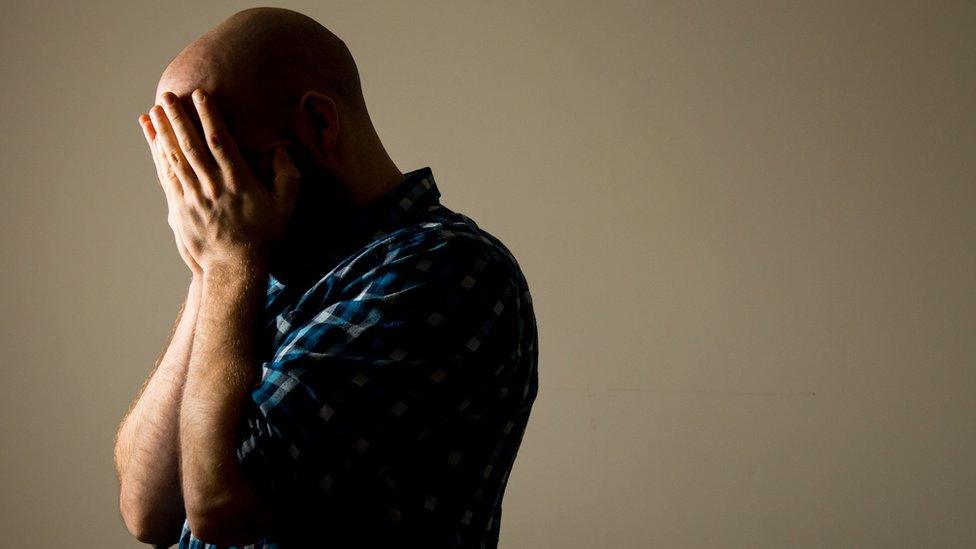
- Published18 May 2015
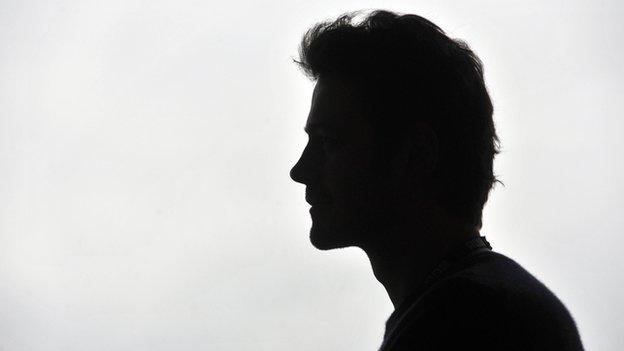
- Published11 December 2014
